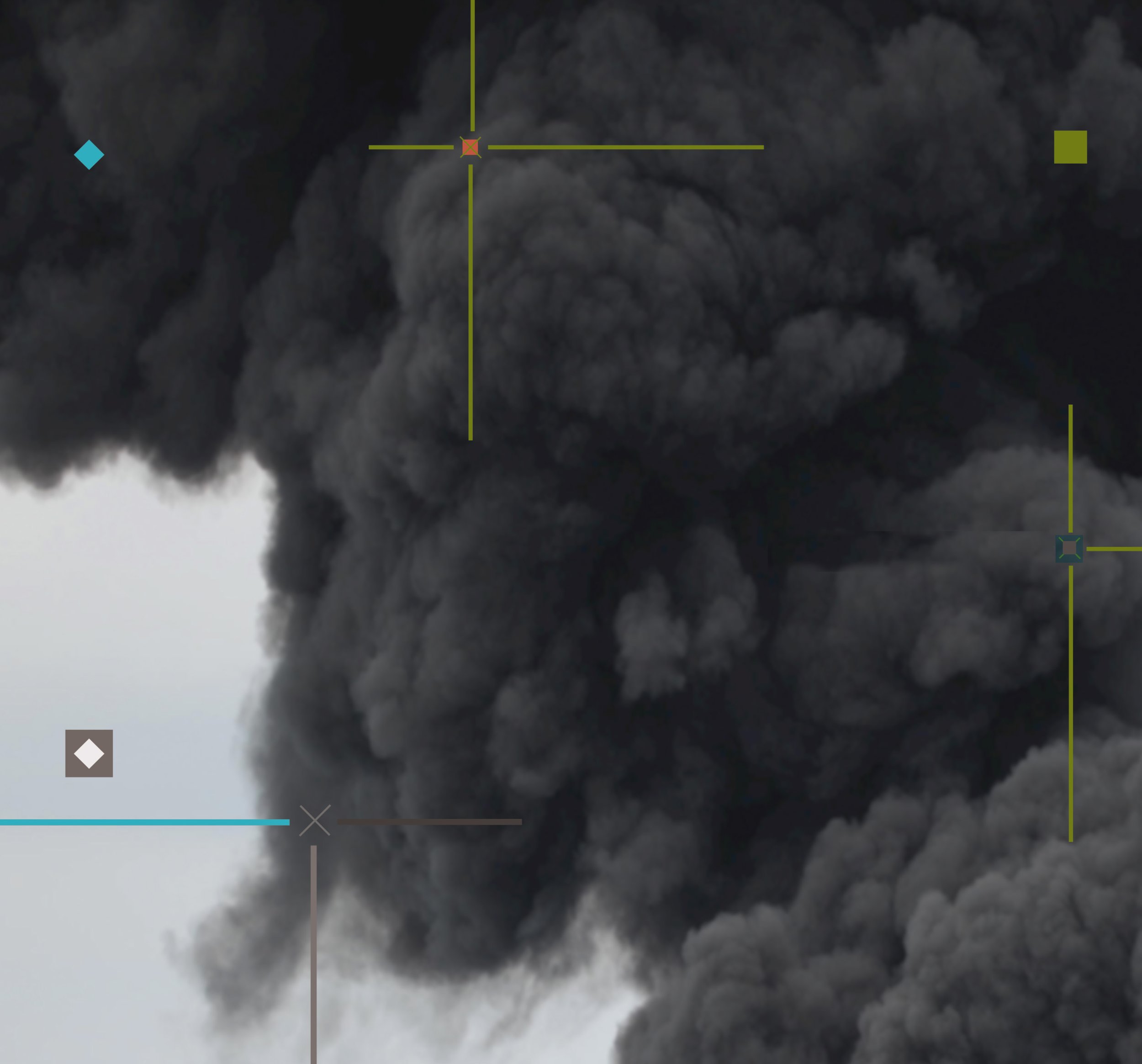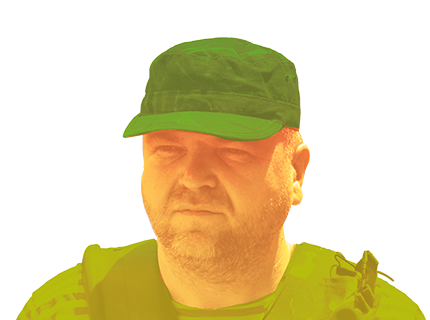
BORYS HUMENYUK
Borys Humenyuk was born in Ostriv, Ternopil oblast, in 1965. He is a poet, writer, and journalist. He has taken an active part in Ukraine’s Revolution of Dignity of 2013. Since 2014, he has been involved in the anti-terrorist operation in the Ukrainian Donbas region. He now serves in a self-organized military unit composed mainly of volunteers.

From the Translator
Michael M. Naydan, Woskob Family Professor of Ukrainian Studies, The Pennsylvania State University
Borys Humenyuk is a Ukrainian soldier on the front line in Eastern Ukraine. His war doesn’t consist of the daily drips and drabs that are conveyed matter-of-factly in newspaper articles or online about the numbers of soldiers who died or are wounded on a given day, or in clips filmed for TV for public consumption. He in fact expresses his and his compatriots’ disdain in his poems for war correspondents, who flit in and out from the front lines at whim, but escape with their story of the day to safety. Humenyuk’s war poetry isn’t about patriotism per se, though that’s likely why he initially went to fight to defend his native land. The stories of the war told in his poetry are REAL. They are a chronicle about daily survival, about friends and comrades who are wounded, who die, but not just as dehumanized numbers on the battlefield in daily counts of casualties, but real human beings with names like Sashko from Boyarka and Max from Luhansk. Humaniuk’s poetry is about the unfiltered experience of war: it is direct, often ironic, but always intense. He documents and remembers what is happening in close temporal proximity, not so much to make sense of it all just because it is still too close to him. Instead of Wordsworthian emotion recollected in tranquility, he observes all-too-recent recollections amid chaos, stress and duress that keep returning in a seemingly endless cycle for the poet-warrior.
In reading his poetry one gets the impression that there is no sense to war for it brings nothing but death to soldiers, to civilians, to children. It brings the destruction of buildings, villages, and cities. Nature, in the form of various birds, feeds off it as carrion in a great chain of being. Humenyuk’s depiction of human body parts expresses the dehumanization inherent in war, yet as synecdoche the part stands for the whole -- the once living, breathing human being who becomes just another form of meat for recycling. In sharing the horrors, in sharing the pain, the poet hopes to find a certain amount of emotional release. Hopefully he does. Humenyuk gives us the HUMAN perspective that his last name suggests in English. And we as readers gain at least some understanding of the pain and trauma that war, and not only the current one, entails.
